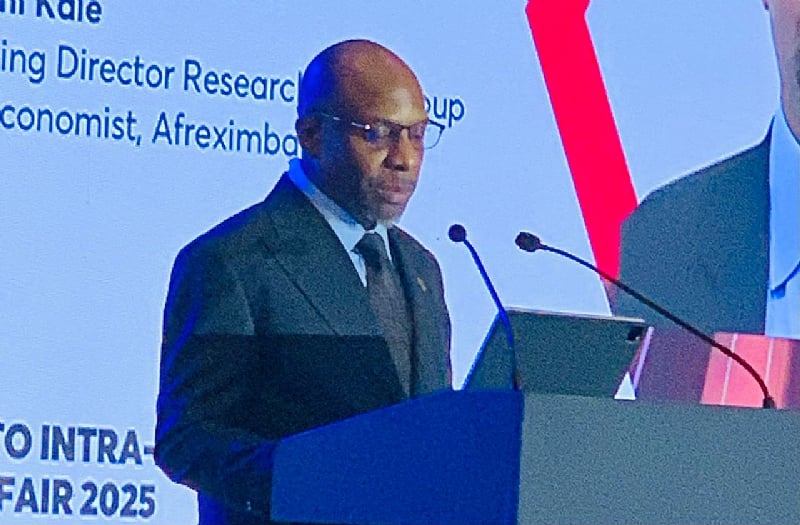The imperative for strengthened intra-African trade has been emphatically reiterated by the African Export-Import Bank (Afreximbank), underscoring the continent’s vast untapped potential and the need to shift away from dependence on external markets. Afreximbank’s Chief Economist, Dr. Yemi Kale, articulated this crucial message during the Intra-African Trade Fair (IATF) 2025 Roadshow held in Accra, Ghana. He emphasized the urgency for African nations to prioritize internal trade partnerships, focusing on value addition and industrial transformation as pathways to sustainable economic growth. His call to action resonates with the broader objective of reducing reliance on external markets and fostering self-sufficiency within the African continent. Dr. Kale stressed that intra-African trade should extend beyond raw materials to encompass value-added goods, services, and innovations, thus promoting diversification and greater economic complexity.
Dr. Kale’s participation in the roadshow forms part of a wider campaign to generate momentum and support for IATF 2025, scheduled to take place in Algiers, Algeria, from September 4th to 10th. The IATF serves as the commercial arm of the African Continental Free Trade Area (AfCFTA) agreement, a landmark initiative designed to bolster economic integration across the continent by dismantling trade barriers. The Fair provides a platform for businesses to connect, showcase their products and services, and forge partnerships that contribute to increased intra-African trade. By facilitating these interactions, the IATF aims to translate the AfCFTA’s objectives into tangible trade and investment outcomes.
The Chief Economist highlighted glaring missed opportunities within Africa, citing specific sectors like meat and leather where significant import expenditures could be redirected towards intra-African trade. He pointed out that West African countries expend over US$3 billion annually importing meat from distant markets like Argentina and Australia, while African nations like Botswana and Mali possess the capacity to satisfy this demand. This example underscores the potential for import substitution and the significant economic gains that can be realized through strengthened intra-African trade linkages. By sourcing these products within the continent, African nations can reduce their reliance on external markets, enhance regional value chains, and stimulate economic growth within their own borders.
Dr. Kale emphasized the pragmatic nature of the IATF, distinguishing it from mere talk shops and highlighting its role as a catalyst for concrete action. He stressed the platform’s function in connecting businesses across Africa, fostering trade relationships, and promoting self-reliance. He underscored the tangible impact of previous IATFs, referencing the over US$100 billion in trade deals facilitated through the initiative. This track record demonstrates the IATF’s effectiveness in translating discussions and agreements into real-world trade and investment flows.
Ghana, as the host nation of the AfCFTA Secretariat, was urged to take a prominent role in the 2025 Fair, showcasing its diverse economic landscape, including its private sector, small and medium-sized enterprises (SMEs), creative industries, and public institutions. Dr. Kale encouraged robust Ghanaian participation, advocating for Ghanaian businesses to exhibit their products and services, for Ghanaian provinces to host dedicated pavilions, and for Ghanaian entrepreneurs to actively engage in deal-making. Ghana’s leadership role in the AfCFTA underscores the importance of its active participation in the IATF, leveraging the platform to further promote intra-African trade and investment.
The 2025 edition of the IATF is projected to be a significant event, with expectations of over 2,000 exhibitors from more than 75 countries and over 35,000 participants. Afreximbank anticipates that the Fair will generate over US$44 billion in trade and investment deals, further solidifying its position as a vital platform for driving intra-African trade and economic integration. This projected impact highlights the growing momentum behind the AfCFTA and the increasing recognition of intra-African trade as a key driver of sustainable economic development. The IATF’s role in fostering these connections and facilitating these deals is crucial for realizing the full potential of the AfCFTA and transforming the African economic landscape.


